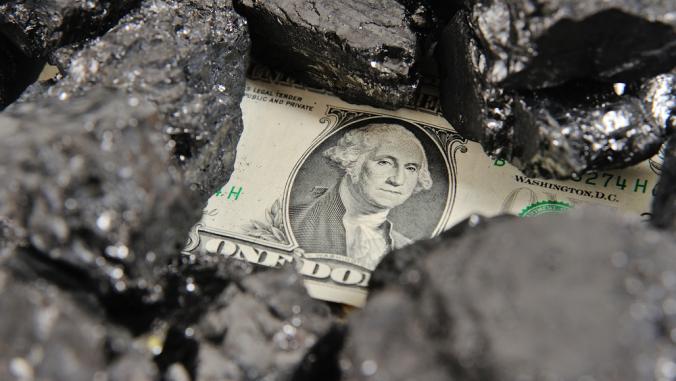Joule raises $40 million to rev up alt-fuel industry
Will a big new funding round be enough to help mainstream alternative fuels — or will slumping oil prices and push back from incumbents put on the brakes?

Hydrocarbon-based liquid fuels engineered through reverse combustion don’t exactly sell themselves to potential buyers lacking a PhD in chemistry.
But the value proposition is actually pretty straightforward for Joule Unlimited, which today will announce a new $40 million funding round to ramp up commercialization of its technologies designed to convert sunlight and CO2 waste into transportation fuels.
Rather than a wonky alt-fuel experiment, Joule Executive Vice president of Corporate Development Tom Jensen frames the technology as a viable example on the road to carbon-neutral transportation — be it cars, trucks, planes or commercial ships.
“It enables you to think about a future of mobility that is in harmony with a growing population,” Jensen said in an interview with GreenBiz.
What differentiates Joule from biofuel companies that use biomass products like corn, wood or algae to generate fuel is the company's use of CO2 generated by genetic engineering of microorganisms that subsist on carbon dioxide, sunlight and other nutrients. That approach means that the company can produce fuel without the use of agricultural land, fresh water or crops.
"We’re replicating photosynthesis at industrial scale," Jensen said.
But scale doesn't come cheap. Joule, which was founded in 2007, has registered multiple patents and has another 100 pending.

Though that's still a goal, Jensen said the company projects that volume of that magnitude could drive prices down to roughly $50 a barrel.
All told, the advanced biofuel company has already raised $200 million. The capital infusion also follows a recent change in chief executive, with former telecom and oil company executive Serge Tchuruk having joined Joule as CEO in November — just a few months after the Environmental Protection Agency granted its first approval ever to use genetically-modified microbes for commercial biofuels or chemicals.
“The fuels we are producing meet the standards in the United States and the European union,” Jensen said, calling Joule's offering "one of the most scaleable" alt-fuel technologies.
Realizing that potential, however, depends on really translating potential to commercial markets.
Biofuels vs. $60-a-barrel oil
Joule also doesn’t shy away from the volatility currently defining global oil markets, even though some energy analysts have speculated that low fossil fuel prices could stunt development of alternatives — particularly variations reliant on biomass.
"Makers of biodiesel, a fuel made from vegetable oil or animal fats, are slashing prices and margins in a bid to stay competitive with the price of diesel fuel, which is down more than 20 percent from a year ago," Reuters recently reported.
While Joule is more insulated from obstacles like fluctuating commodity prices, which can hit corn-based ethanol providers particularly hard, Jensen said Joule is also confident in the long-term prospects for low-carbon transportation.
“In many ways, it’s a benefit for us,” Jensen said of the oil slump. “We produce a carbon-neutral fuel. A carbon-neutral fuel is increasingly valued from a de-carbonization perspective.”
While he is adamant that Joule will also eventually be able to compete on price alone, Jensen said that external pressure to address climate change by shifting away from high emissions are another driver toward alternative fuels.
Joule and other biofuel companies are betting on a combination of clean energy incentives and subsidies along with mechanisms that financially penalize emissions, like cap-and-trade regimes or the specter of a carbon tax.
“We present a solution to that,” Jensen said. “In many ways, the value of that is actually higher than the energy value of the product itself.”
He pegs the timeline for demonstrating the technology's productivity for commercial deployment at 12-24 months, after which the company will likely need to expand its production capability.
A shifting fuel economy
Developing promising research in a rapidly-changing market is one challenge. Getting the resulting energy product on the market is another obstacle.

Also on Monday the fuel company released the results of third-party testing of its ethanol fuel.
"Audi and Joule share a commitment to making carbon-neutral mobility a reality," said Reiner Mangold, Head of sustainable product development for Audi AG, in a statement. "The successful testing of ethanol produced from CO2 is another encouraging indication of this technology’s progress."
Moving forward, the company will also look to partner with oil companies, aviation companies and businesses in the marine transportation sector. In addition to building up a customer base, Jensen said partner companies offer multiple potential channels for cost- and revenue-sharing.
"You can license. You can do a joint venture. Or you can partner or do combinations of that," Jensen said. "That value can be cut many ways."
Though that's a broad business plan, he said its one that Joule is confident will be bolstered by a much broader transition to low-carbon industry.
“This market is one of the largest markets on the planet,” he said. “We are not concerned about business models at all.”





